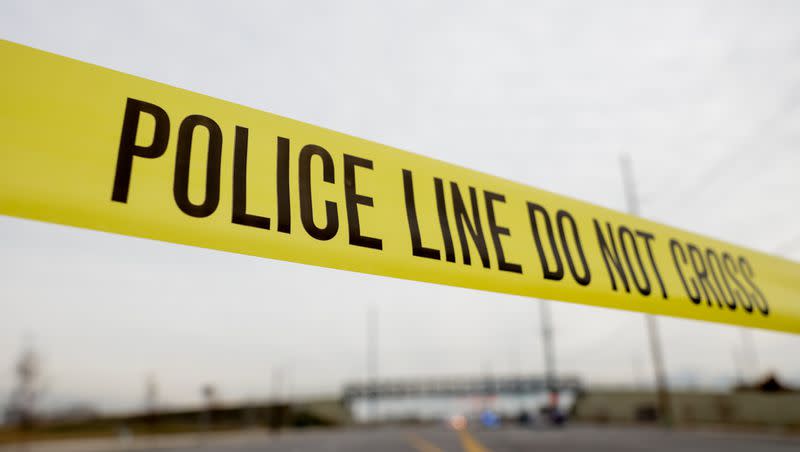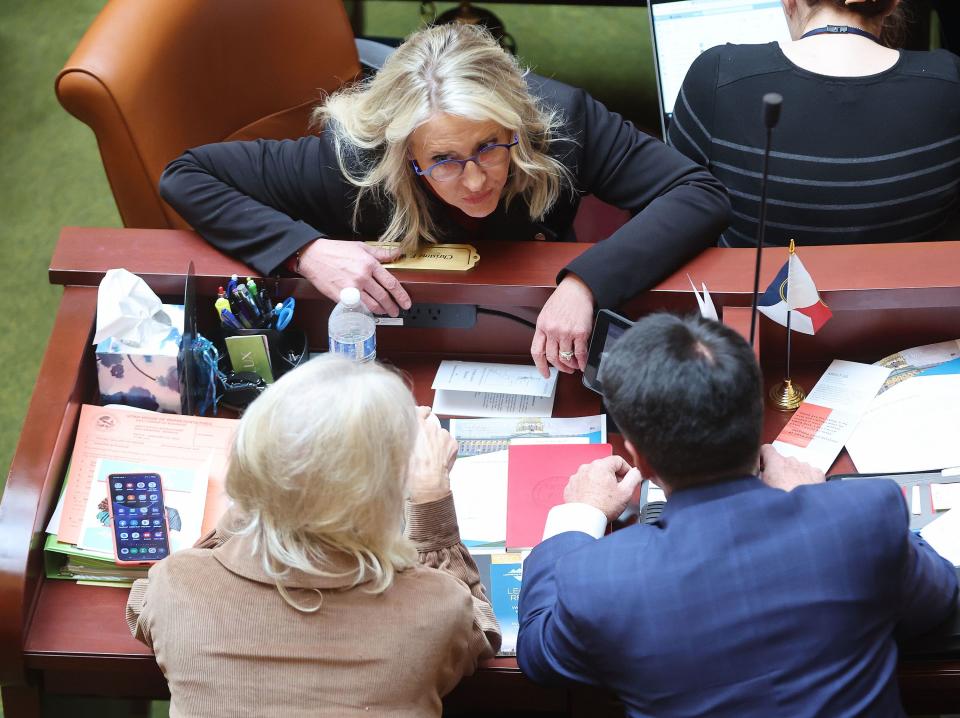One lawmaker wants to streamline the reparations process for crime victims

A December day in 2020 left Susan Duehlmeier’s daughter in the hospital with catastrophic injuries, including broken occipital bones and knocked out teeth. A car speeding 70 mph collided with her daughter’s vehicle.
Duehlmeier appeared before a House Law Enforcement and Criminal Justice committee meeting Wednesday to tell her daughter’s story as Rep. Melissa Ballard, R-North Salt Lake introduced HB276, a bill that deals with crime victims reparations.
Committee members were shown pictures of Duehlmeier’s daughter’s injuries before she explained the cost of the crash on their family. In addition to the broken occipital bones and knocked out teeth, Duehlmeier’s daughter suffered a compound fracture, a brain bleed, a traumatic brain injury and a broken jaw, per KUTV. On top of the psychological and emotional trauma, the injuries sustained were costly.
“We probably have put out $150,000 for expenses,” Duehlmeier said in the meeting, explaining that insurance helped cover some additional expenses. When the family went to seek restitution for what had occurred, they had to wait for months. “We were told that we could not get any help until the case was closed,” she said.

Ballard’s bill is aimed toward helping victims of crime receive reparations in a timely manner. It would allow the Utah Office for Victims of Crimes to give lump sum payments for crime-related deaths or disability and establishes procedures around these kinds of requests.
Gary Scheller, director of the Utah Office for Victims of Crime, said there are two caps on reparations in current statute. There’s a $50,000 cap for crimes that have aggravating circumstances and $25,000 in the cases of crimes without those circumstances.
“We are in a perfect position as a government agency to say ‘here’s some emergency funding’ and work to set very tight parameters on what that looks like,” Scheller said as he explained that the current way the office operates can leave people “in a holding pattern” while the office waits for the necessary information from law enforcement to move forward.
During the meeting, Vickie Walker, who was appointed to the Crime Victims Reparations Board by Gov. Spencer Cox, spoke about why she supported the bill.
When her husband Jeff and her son A.J. were shopping at Trolley Square, her husband was murdered and her son had received life-threatening injuries. Walker described how she was “sobbing” in the funeral home when they brought the bill to her and she didn’t know how she’d be able to afford it.
Walker said she supported the bill because she knows what it’s like to have bills pile up as the result of a crime. “We had medical bills, we had therapy bills, we had a lot of bills surrounding A.J.’s injury and Jeff’s death,” she said. “And we noticed that it was almost a year after Jeff was murdered that we were still paying bills.”
Others said that they favored getting help to victims, but said the bill needed some tweaks as it pertains to the requirement contained within the bill for law enforcement to produce a report of the crime to the office.
Tom Ross, executive director of the Utah Commission on Criminal and Juvenile Justice, said, “The good news is, to me, that everyone recognizes we’ve got to get funding to victims as soon as possible.” But he added that this has to be done in a way that doesn’t hurt law enforcement investigations.
As the bill is currently written, it states, “a law enforcement agency shall provide a complete copy of an investigative report to the office within five business days of the date the office requests a copy of the report.” Based on that investigative report, the office would then determine if the victim can receive reparations for what happened.
It was this language in the bill that sparked a significant amount of discussion.
Nate Mutter, chair of the Utah Law Enforcement Legislative Committee, said, “I hate to say that we do oppose this bill as it’s currently written.”
“We definitely do not want to get in the way of legislation that helps support victims and we believe there is a part to this bill that does support victims and we are really here for that part,” Mutter said. He added that the opposition stems from the lack of distinction between an open and a closed investigation.
“We have zero problems handling over a closed investigation that becomes a public record at that point and we definitely want to move that process forward and give information to whoever needs it as fast as possible,” Mutter said. “Where the concern is, of course, is the open investigation.”
Mutter explained they were concerned that it “puts the integrity of that investigation at risk. And where we’re trying to help victims, that could actually hurt victims if that information were to get it.” Some investigations, he said, are protected from other members of the agency that’s doing the investigation and there’s a necessity for that.
After public comment closure, the committee voted to hold the bill, which means that it’s still in committee and has not yet moved to a floor vote.

